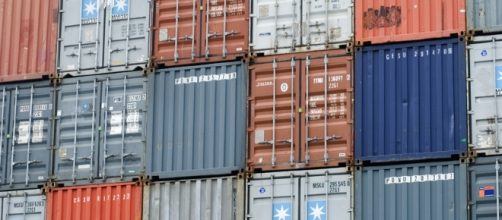Container tech is getting more buzz these days. This might be the single big reason why Microsoft Azure is making two big announcements this week. The first one is the official unveiling of a new Cloud Service that aims to make it easier to get up and running with the container technology, while the second one is joining a key industry foundation that search giant Google first announced in 2014.
According to TechCrunch, the Redmond-based software company this week announced a new container service for its Azure cloud computing platform, called Azure Container Instances (ACI).
The company’s Director of Computer for Azure, Corey Sanders, has provided the details of this newly launched cloud service on the Microsoft Azure’s official blog site.
About the newly launched service ACI
As mentioned earlier in the Azure blog, ACI is a new Azure cloud service that will deliver containers with great simplicity and speed and without any virtual machine (VM) infrastructure to manage. Sanders also made a bold claim that the newly announced service will be the fastest and easiest way to run a container-based application in the cloud.
The ACI, which claims to be the first service of its kind, is currently available as a public preview for Linux containers. The new service will allow developers to start containers on the Azure cloud with their own choice of CPU cores and memory setup.
The new service will allow developers to create containers on Linux platform without setting up virtual machines or VM.
Deploying container-based applications will now be easy, which will take only some few simple commands. Memory size can be decoupled from some virtual compute instances, providing greater flexibility for developers. More importantly, usage will be billed by the second.
For now, the new service ACI only supports Linux-based containers, but Microsoft is expected to announce support for Windows in the coming days. Also, the software giant also announced an open source ACI Connector for Kubernetes, which allows Kubernetes cluster to deploy to Azure Container Instances.
Microsoft joins the CNCF and Kubernetes, putting pressure on cloud rival AWS
The Redmond-based software company is joining the fast-growing Kubernetes developer's group, the Cloud Native Computing Foundation (CNCF), as a platinum member. Microsoft’s latest move is the most recent indication of the still ongoing makeover at the software company under its CEO Satya Nadella, who ran Azure before he became CEO in the company. The moves also a clear sign that Kubernetes, the Google-led open source container platform, is pulling more and more companies on board.
For starter, Kubenetes is an open source container orchestration platform for automating deployment, scaling and managing cloud workloads through container tech.
This open source container orchestration service was originally developed by Google before it was open-sourced to the developer world and given to the CNCF in 2015.
Google first introduced the open source platform in June 2014, when the search giant announced support for Dockers, an open source project that automates container-based application deployment. Since then, Kubernetes has quickly emerged as a key cloud technology for managing containers-based applications.
Microsoft’s decision to join the important cloud foundation CNCF has made some big news in the tech circle. The move has just isolate cloud rival Amazon’s AWS, which now the only major cloud provider that hasn’t joined CNCF. Some analyst believes that the news could put a lot of pressure for Amazon to jump and join the container-focused group.
Still, the Seattle-based tech behemoth supports Kubernetes through a partnership with Heptio, a pure-play Kubernetes company. The cloud giant also provides support for a number of popular container-related services. However, Amazon has its own container orchestration platform, called the Amazon EC2 Container Service.
Amazon’s cloud strategy to keep customers on its cloud platform by offering best-in-class services is no longer a secret in the tech industry. The tech giant has been working hard, always releasing new features and services that customers can’t pass up. However, if the industry decided to embrace Kubernetes for container technology, that could be a different story. It could be a life-threatening situation for Amazon, one that requires a quick countermeasure.
Finally, Microsoft has made some press conference this week to go over the full details of the newly announced Microsoft Azure service. Check out the Azure Blog for more about this new service.


